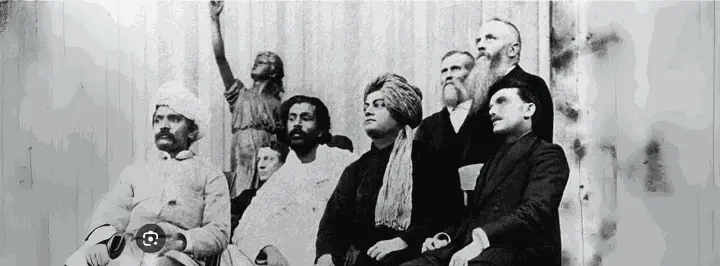
Swami Vivekananda was more than just a spiritual leader; he was a visionary who played a crucial role in shaping modern India. His teachings, philosophy, and vision for the nation continue to inspire millions. He awakened India to its rich cultural and spiritual heritage while also advocating for rationality, self-reliance, and service to humanity.
Early Life and Spiritual Awakening
Born as Narendranath Datta on January 12, 1863, in Kolkata, he was a bright and inquisitive child. His thirst for knowledge led him to question everything, including religion. However, his life changed when he met Sri Ramakrishna Paramahansa, who became his spiritual mentor. Under Ramakrishna’s guidance, he realized the essence of Vedanta and the unity of all religions.
The Chicago Speech: India’s Voice to the World
One of the most defining moments of Swami Vivekananda’s life was his speech at the Parliament of the World's Religions in Chicago on September 11, 1893. Beginning with “Sisters and Brothers of America,” he won over the audience with his message of universal brotherhood, tolerance, and India’s spiritual wisdom. This speech marked the beginning of his mission to take Vedanta and Indian philosophy to the global stage.
Philosophy and Teachings
Swami Vivekananda believed that religion should not be confined to rituals but should uplift humanity. He preached the practical application of Vedanta, urging people to see God in every human being. His ideas revolved around four key principles:
- Faith in Oneself: He emphasized the importance of self-confidence and inner strength, believing that individuals must first recognize their potential.
- Service to Humanity: He considered serving the poor and needy as the highest form of worship.
- Nationalism and Patriotism: He encouraged Indians to take pride in their heritage and work for the upliftment of the country.
- Harmony of Religions: He firmly believed that all religions lead to the same truth and advocated for interfaith harmony.
Establishment of Ramakrishna Mission
To institutionalize his vision of selfless service, Swami Vivekananda founded the Ramakrishna Mission in 1897. The organization continues to work in education, healthcare, rural development, and spiritual upliftment across India and beyond.
Influence on India’s Freedom Struggle and Youth
Many Indian freedom fighters, including Subhas Chandra Bose and Mahatma Gandhi, were deeply influenced by his thoughts. He instilled a sense of self-respect, courage, and determination in the youth, urging them to dedicate themselves to the service of the nation. His famous words, “Arise, awake, and stop not till the goal is reached,” continue to inspire generations.
Legacy and Relevance Today
Swami Vivekananda passed away on July 4, 1902, at the age of 39, but his legacy lives on. His teachings on education, nationalism, and self-reliance remain relevant in modern India. The National Youth Day, celebrated on his birth anniversary, reminds the country of his immense contribution.